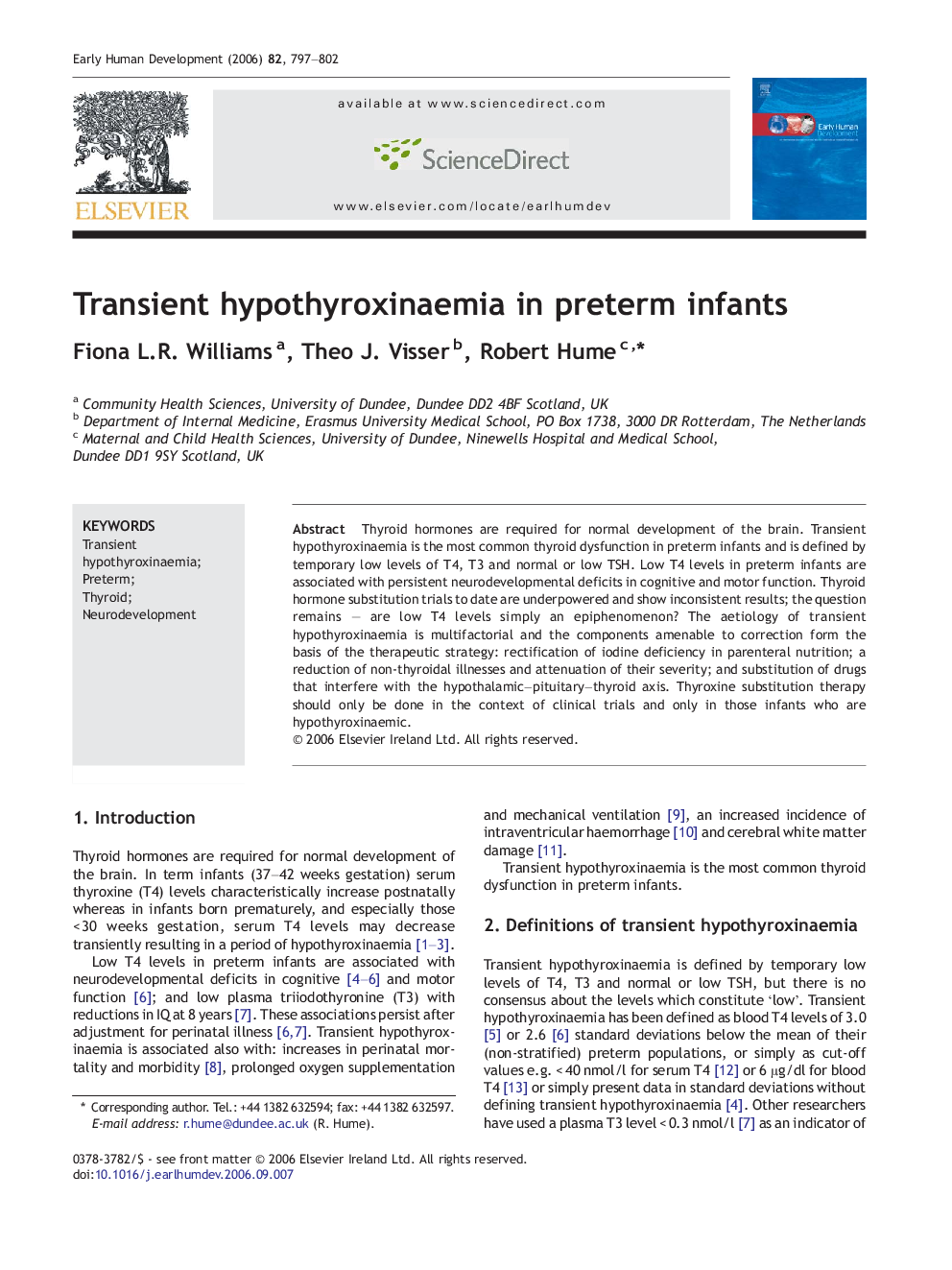| Article ID | Journal | Published Year | Pages | File Type |
|---|---|---|---|---|
| 3918763 | Early Human Development | 2006 | 6 Pages |
Thyroid hormones are required for normal development of the brain. Transient hypothyroxinaemia is the most common thyroid dysfunction in preterm infants and is defined by temporary low levels of T4, T3 and normal or low TSH. Low T4 levels in preterm infants are associated with persistent neurodevelopmental deficits in cognitive and motor function. Thyroid hormone substitution trials to date are underpowered and show inconsistent results; the question remains — are low T4 levels simply an epiphenomenon?The aetiology of transient hypothyroxinaemia is multifactorial and the components amenable to correction form the basis of the therapeutic strategy: rectification of iodine deficiency in parenteral nutrition; a reduction of non-thyroidal illnesses and attenuation of their severity; and substitution of drugs that interfere with the hypothalamic–pituitary–thyroid axis. Thyroxine substitution therapy should only be done in the context of clinical trials and only in those infants who are hypothyroxinaemic.
